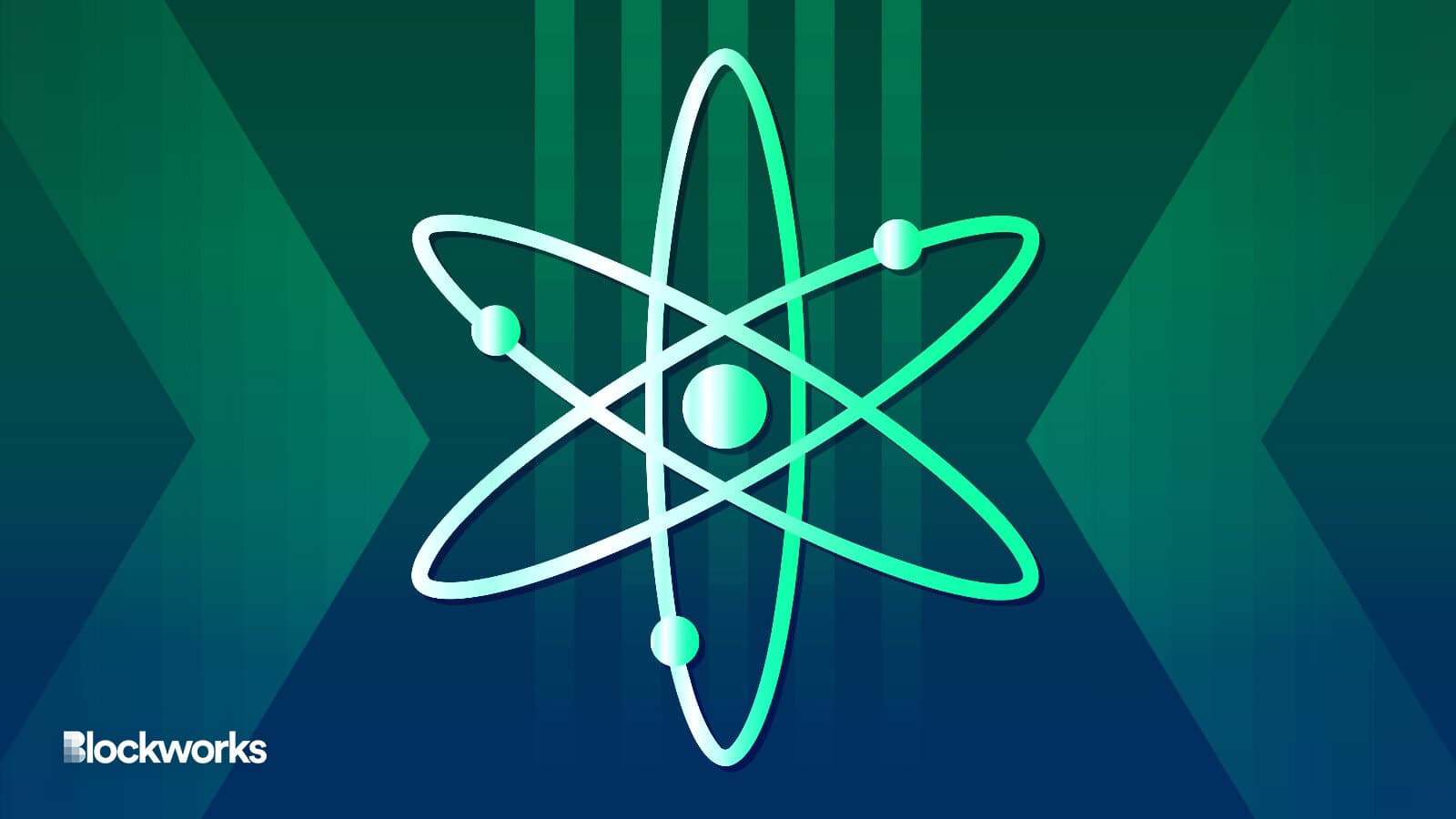Cosmos Hub Staking May Soon be Revamped Following Latest Proposal
LSM will remove the 21-day unbonding period for liquid-staked tokens

Satheesh Sankaran/Shutterstock modified by Blockworks
The Cosmos Hub has passed a signal proposal to replace existing Cosmos Hub staking, distribution, and slashing modules with the Liquid Staking Module (LSM).
Proof of stake blockchains are designed so that validators must lock up their tokens in order to participate in securing the network and earn rewards.
For Cosmos, this means that validators must lock up ATOM tokens.
Once a token is locked into the network, validators must wait 21 days before they are able to use them again — this is considered an unbonding period and its intention is to prevent masses of validators from suddenly withdrawing their tokens.
Implementing LSM means that ATOM token holders will be able to liquid-stake their already staked tokens without needing to wait for a 21-day unbonding period.
Blockworks Research Analyst David Rodriguez notes that this proposal is a big win for the Cosmos Hub and its wider ecosystem.
“Cosmos liquid staking can unlock billions of dollars in staked liquidity and allow Cosmos DeFi to flourish over time,” Rodriguez said. “By double dipping in ATOM inflation and Cosmos DeFi yield, ATOM has a chance to become the de facto reserve asset of the ecosystem and make Cosmos DeFi much more attractive to users.”
To alleviate some risk, a limit of 25% will be placed on liquid staking tokens which can be staked, and this limit can be changed through the Cosmos Hub governance.
Further, LSM will introduce a mechanism called a “validator bond,” where each validator must self-bond ATOMs at a ratio of 1:250 to receive ATOM tokens from liquid staking delegations.
Traditionally, if a validator were to be malicious, their self-bond would be slashed — with LSM, validators will be required to put more skin in the game, Rodriguez notes. This means that delegations will have the choice to delegate their ATOM to a validator who has self-bonded more tokens.
A little over 60% of ATOM holders voted in this signal proposal. Among them, 87% voted in favor of the proposal, with only 6% voting against and a little less than 7% choosing to abstain.
A proposal to implement LSM will likely be created later in the year.
Get the news in your inbox. Explore Blockworks newsletters:
- The Breakdown: Decoding crypto and the markets. Daily.
- 0xResearch: Alpha in your inbox. Think like an analyst.






